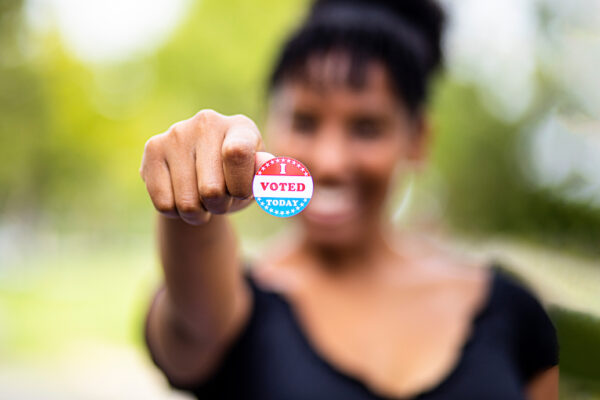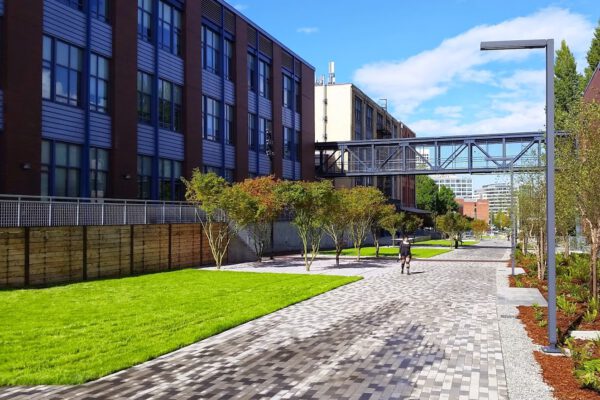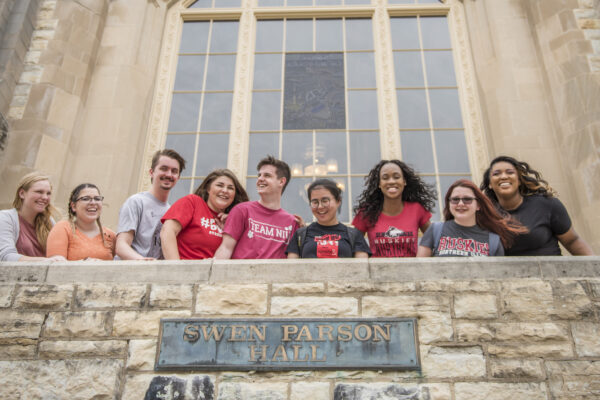No matter which candidate wins the upcoming presidential election, campus leaders have a role in maintaining civility, promoting civic engagement, and celebrating the democratic process. Six participants from ACE’s Community of Practice on Civic Engagement and Democracy talk about how colleges and universities can make a difference.
Celebrating Democracy, No Matter the Outcome
By Darren Cambridge and Brad Farnsworth, American Council on Education
The 2020 presidential election was bound to be controversial even before COVID-19, but the pandemic has made the stakes even higher. Campuses, normally centers for voter registration and other political events, are struggling to maintain a sense of normalcy or are physically closed altogether. The typical activities surrounding civic engagement in an election year must be carefully considered, either because of the limitations of social distancing or because of the fraught nature of today’s political and racial climates.
No matter which candidate wins, campus leaders have a role in maintaining civility, promoting civic engagement, and celebrating the democratic process. ACE’s Community of Practice on Civic Engagement and Democracy recently discussed how to make the election meaningful to students, no matter the outcome. Composed of 45 members, the community of practice includes presidents, provosts, vice presidents, faculty, and nonprofit leaders from a variety of institutions. Together, they explored how campuses can prepare for the 2020 election, as well as a vision for success that focuses on student and institutional outcomes, not political wins.
Last Call for Democracy: A Message for College and University Leaders
By Nancy L. Thomas and Adam Gismondi, Institute for Democracy & Higher Education, Tufts University
Early voting is underway, and Election Day is in less than a month. That is still enough time for presidents and other institutional leaders to inspire students to participate in this historic election and chart the nation’s future. In fact, the next three weeks are critical.
Our analysis of students at the 1,100+ colleges and universities participating in our National Study of Learning, Voting, and Engagement showed that although student registration rates are relatively high (more than 75 percent), only 53 percent of students who were registered ended up actually turning out to vote in 2018, a year in which activism and a backlash against the current administration were high. This yield rate needs to change, and the critical period to affect that is now. Last call!
We ask you to take a stand for student voting rights, engage the big questions about our democracy’s health and what’s at stake in this election, and double down to protect academic freedom and the right of educators to discuss political issues with students.
Bridging Divides, Public Work: A Call to Action for Higher Education
By Derek W. M. Barker of the Kettering Foundation and Harry C. Boyte, Augsburg University
To put it mildly, the American electoral system is troubled. The republican system of government was designed to withstand and take advantage of our tendency to divide into factions, yet today the nation suffers from deep polarization, acrimony, and even hatred. A new poll by the group Braver Angels finds that a majority of Americans fear violence and crisis around the upcoming election. The current division also coincides with a concerning long-term decline in confidence in government and public institutions—including higher education.
Higher education has a crucial role to play in this troubled time, one which could help turn the dangers into opportunities for reconnection with civic life.
If you have any questions or comments about this blog post, please contact us.


